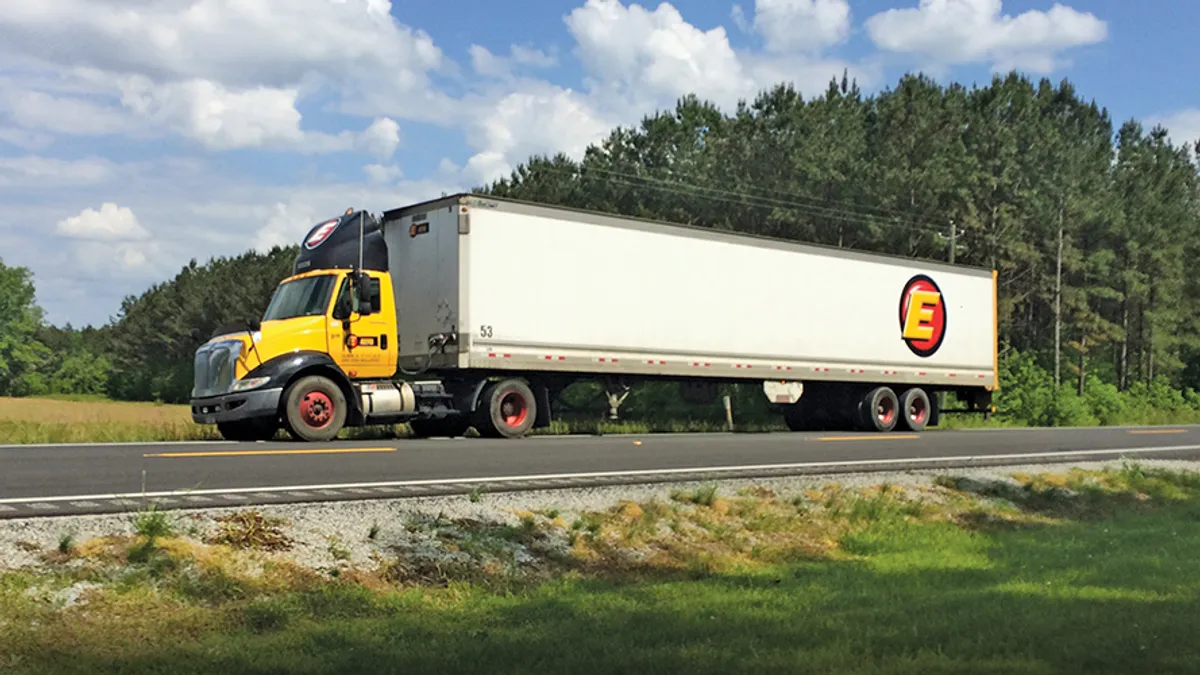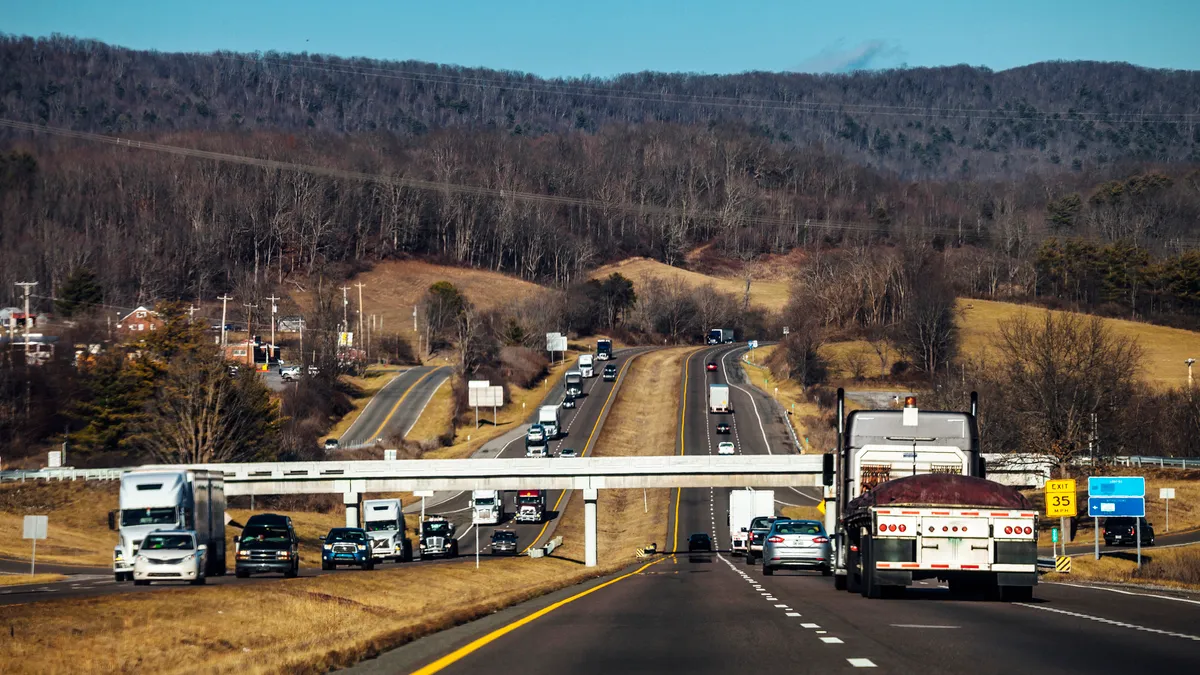Dive Brief:
- Estes Express Lines will add 50 new trucks that run on renewable natural gas to its California fleet, according to a Wednesday news release from Clean Energy Fuels, supplier of the fuel. With the addition, Estes will have a total of 71 trucks that use RNG. The existing 21 RNG trucks, added to the fleet this year, are operated out of Texas.
- The Class 8 trucks will use Cummins Westport ISX12N engines. As with the initial 21 trucks, Estes requested Daimler's Freightliner Cascadia model, said Brett Lindsay, vice president of sales for Clean Energy Fuels. Estes is expected to use 2.8 million gallons of RNG over the seven-year contract, according to Clean Energy Fuels.
- Estes used Clean Energy Fuels' Zero Now program to buy the trucks. The program brings the price of an RNG truck roughly equal to a diesel truck, while offering a guaranteed fuel discount during the contract, according to Clean Energy. Estes is a large privately held LTL fleet based in Richmond, Virginia. It has 7,000 tractors and 30,000 trailers.
Dive Insight:
Clean Energy Fuels, a 21-year-old California company, has been successful making the pitch for RNG because it is affordable, and it's very green, Lindsay said.
"We have a near-zero product and we have a product that is affordable ... that is available today," said Lindsay. "Their operational expense line is pretty important to them."
The new Cummins engine is 90% cleaner than any standard diesel engine on the road, Lindsay said. RNG can reduce greenhouse gases by 70%, and, depending on the source of the RNG, the emissions savings can zoom to 300%, because sometimes RNG extraction stops methane from getting into the sky at the point of emission, such as a dairy farm.
Clean Energy Fuels' other clients include UPS, Linden Bulk, Alpha Lion Trucking and New York City's public bus fleet. The fleets usually return, once they have a good experience with the initial batch, Lindsay said. Estes' 50 new RNG trucks will be used in California, where Golden State officials are pressuring fleets to use models that cut down considerably on emissions, or zero them out completely.
On June 25, the California Air Resources Board passed its Advanced Clean Trucks regulation. By 2045, every new truck sold in California will be zero-emission, according to the rule. Other states are following suit. In the face of growing consumer and political concern about emissions, RNG is getting more buyers from fleets.
Last month, Anheuser-Busch said it will convert 180 trucks — 30% of its fleet — to RNG. The effort is part of the brewer's sustainability goals, set for 2025. The beer trucks travel 8.5 million miles each year and the change will reduce its emissions by more than 70% compared to diesel, the brewing company said. That is equivalent to taking 66,000 cars off the road.
UPS started using RNG in 2013, beginning the conversion process for some trucks. The company made one of the largest U.S. purchases of RNG in 2019. The reasons UPS went with RNG to power its fleet involved the fuel becoming more widely available, its ability to seamlessly integrate into an existing natural gas system and its "very good emissions profile," Mike Casteel, then UPS director of fleet procurement, told Supply Chain Dive in May 2019.
In 2019, UPS had more than 50 natural gas stations and several thousand natural gas trucks operating in the United States, Casteel said. Since 2009, UPS has invested $1 billion in "alternative fuel and advanced technology vehicles and fueling stations globally," according to a UPS press release.












